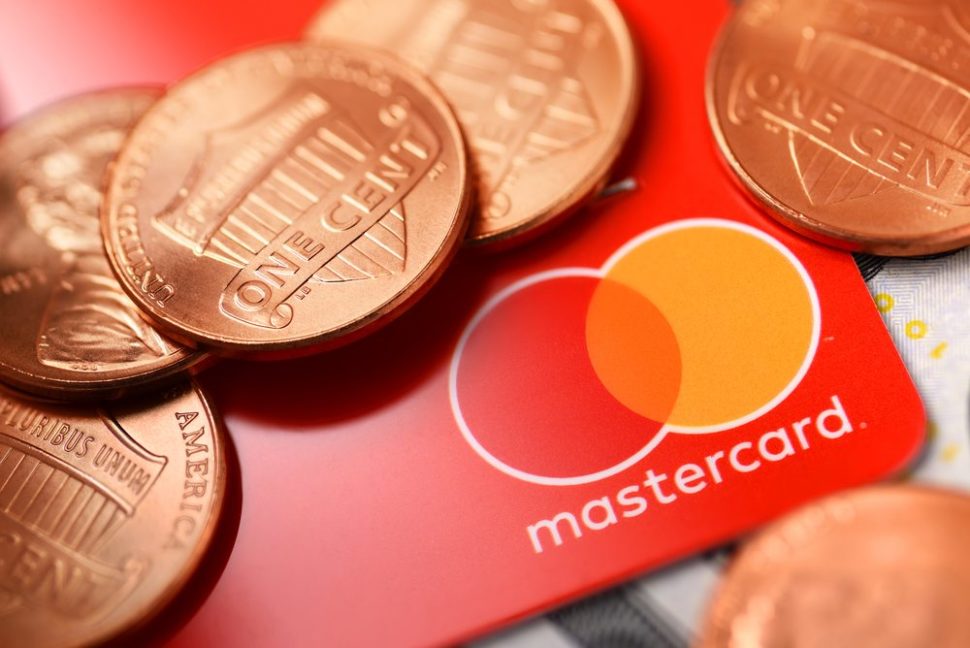Finally, credit card giant MasterCard adopts blockchain with plans to patent a payment system resembling the technology.
Last October, MasterCard president and CEO Ajay Banga broadly dismissed all non-governmental cryptocurrencies as “junk” in a media interview.
However, if MasterCard adopts blockchain technology as detailed in a recent patent we’ll be discussing below, it would mean the company does see some real value in Bitcoin’s underlying technology.
In an interview with the Economic Times, the MasterCard executive revealed the company would be receptive to a digital currency – if it is developed or mandated by a government.
Unsurprisingly, Mr. Banga openly criticized state-agnostic cryptocurrencies like Bitcoin, stating:
If the government creates digital currency, we will find a way to be in the game.
He continued by stating that MasterCard “will provide rails for moving currency from customer to merchant. The government mandated digital currencies are interesting. Non-government mandated currency is junk”.
Although the CEO of MasterCard has publicly denounced Bitcoin, the company isn’t writing off the underlying blockchain technology altogether.
Mr. Banga ended his interview with Economic Times by stating:
It is an interesting technology and we are working on it. I personally don’t care about Bitcoin, but I do care about blockchain technology.
Adapting Blockchain for Government-Issued Currency
Today, it would seem that MasterCard has taken the initiative when it comes to blockchain technologies.
In fact, drawing inspiration from Microsoft, MasterCard filed a patent for a “Method and System For Instantaneous Payment Using Recorded Guarantees” late last month.
This is, in short, a patent for a blockchain-like system that offers instant payment. It is not a clone, per se, but a patent that assumes that a blockchain-like ledger will be available to store and manage international transactions instantly.
Read More: 5 Ways Blockchain Will Change the World
The patent describes a way to process guaranteed electronic transactions. This method would include:
- storing account profile with an account number and balance
- receiving a transaction message with particular account and transaction numbers, plus the payment guarantee data. This message would be sent via a payment network
- identifying a particular account profile with accompanying account number
- deducting the transaction amount from a particular account profile balance
- generating a payment guarantee record that details the transaction amount plus all the data associated with that specific guarantee
- generating a return message that includes a “response code” detailing approval data and all other information associated with the transaction record
- transmitting that “generated record” over to a computing system through a communication network
- transmitting a confirmation message to the acquiring financial institution via a payment network similar to the one used for the transaction message.
MasterCard Adopts Blockchain (are They Official?)
While the abstract itself doesn’t mention blockchain, MasterCard it’s clear intends to use the technology in the process.
The abstract describes a step in which “the payment guarantee data stored in the third data element included in the received transaction message includes at least a blockchain network identifier”.
#MasterCard would be among the first credit card giants to adopt blockchain. Click To TweetAdditionally, the step would include and a public key or destination address.
Related: Check out our interview with cryptocurrency exchange Remitano on the Future of Cryptocurrencies
What about the record of payment guarantee?
That’s a blockchain transaction that covers the transaction amount stored away in the “second data element”. This second data element is included in the received transaction message that was sent to either the destination address or a different one associated with the public key.
Finally, the abstract details that the computing system is a “node in a blockchain network corresponding to the blockchain network identifier”.
That’s a lot to process, but it basically means MasterCard is looking for ways to increase accountability by storing transaction records in some immutable form.
This tendency to cut the cryptocurrency out of a blockchain discussion is not new and it’s not stopping anytime soon. But it remains to be seen whether or not it’s possible to separate cryptocurrency from blockchain technologies themselves.
What does this mean for your credit card data security?



















How To Find Your Lost Cryptocurrency.
My name is George Lucas. I want to testify about GEO COORDINATES HACKER. They helped me recover my stolen crypto worth $370,000 through their hacking skills. I tried it. I was skeptical but it worked and I got my money back, I’m so glad I came across them early because I thought I was never going to get my money back from those fake online investments. I want to recommend this great hacker to anyone that truly needs an urgent solution. You can also contact them via
Email; geovcoordinateshacker@proton.me
Email; geovcoordinateshacker@gmail.com Telegram ( @Geocoordinateshacker )Website; https://geovcoordinateshac.wixsite.com/geo-coordinates-hack
Had a bad experience regarding investing my funds here, wasn’t easy for me as I was scam severally. I lost almost all of my money until I came across a recovery expert named Jeff. He help and assisted me and helped in terms of recovery my funds . I got my funds recovered in just 4days with just little effort. I will highly recommend Jeff , he is sincere and honest in all way round he helped me got everything i lost.
Contact him now if you need get his help
WhatsApp. +84 94 767 1524
Email; jeffsilbert39 g ma!l. com.